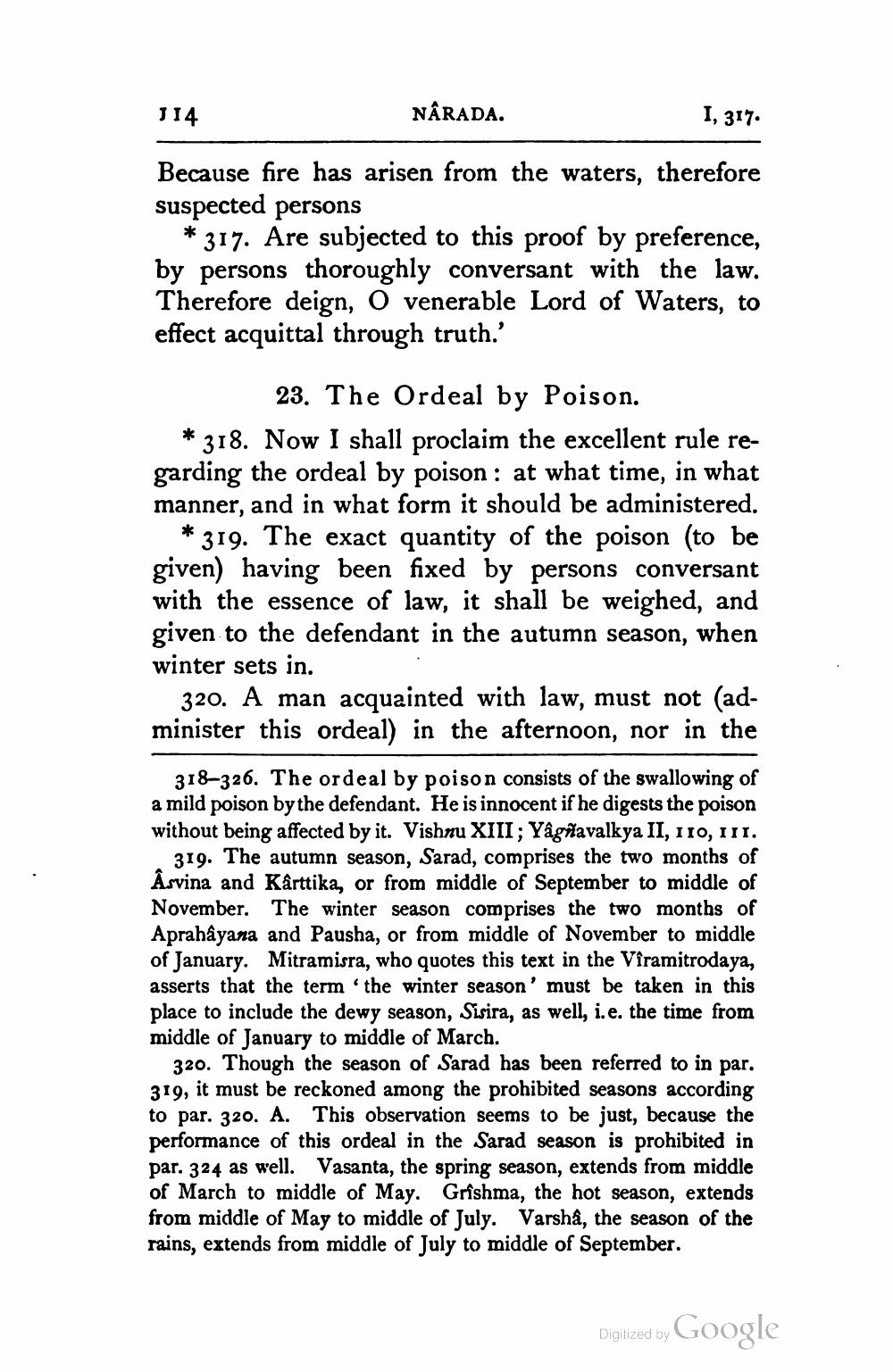________________
J14
NARADA.
I, 317.
Because fire has arisen from the waters, therefore suspected persons
* 317. Are subjected to this proof by preference, by persons thoroughly conversant with the law. Therefore deign, O venerable Lord of Waters, to effect acquittal through truth.'
23. The Ordeal by Poison. * 318. Now I shall proclaim the excellent rule regarding the ordeal by poison: at what time, in what manner, and in what form it should be administered.
* 319. The exact quantity of the poison (to be given) having been fixed by persons conversant with the essence of law, it shall be weighed, and given to the defendant in the autumn season, when winter sets in.
320. A man acquainted with law, must not (administer this ordeal) in the afternoon, nor in the
318-326. The ordeal by poison consists of the swallowing of a mild poison by the defendant. He is innocent if he digests the poison without being affected by it. Vishnu XIII; Yågħavalkya II, 110, 111.
319. The autumn season, Sarad, comprises the two months of Asvina and Kårttika, or from middle of September to middle of November. The winter season comprises the two months of Aprahayana and Pausha, or from middle of November to middle of January. Mitramisra, who quotes this text in the Vîramitrodaya, asserts that the term 'the winter season' must be taken in this place to include the dewy season, Sisira, as well, i.e. the time from middle of January to middle of March.
320. Though the season of Sarad has been referred to in par. 319, it must be reckoned among the prohibited seasons according to par. 320. A. This observation seems to be just, because the performance of this ordeal in the Sarad season is prohibited in par. 324 as well. Vasanta, the spring season, extends from middle of March to middle of May. Grîshma, the hot season, extends from middle of May to middle of July. Varsha, the season of the rains, extends from middle of July to middle of September.
Digitized by Google




